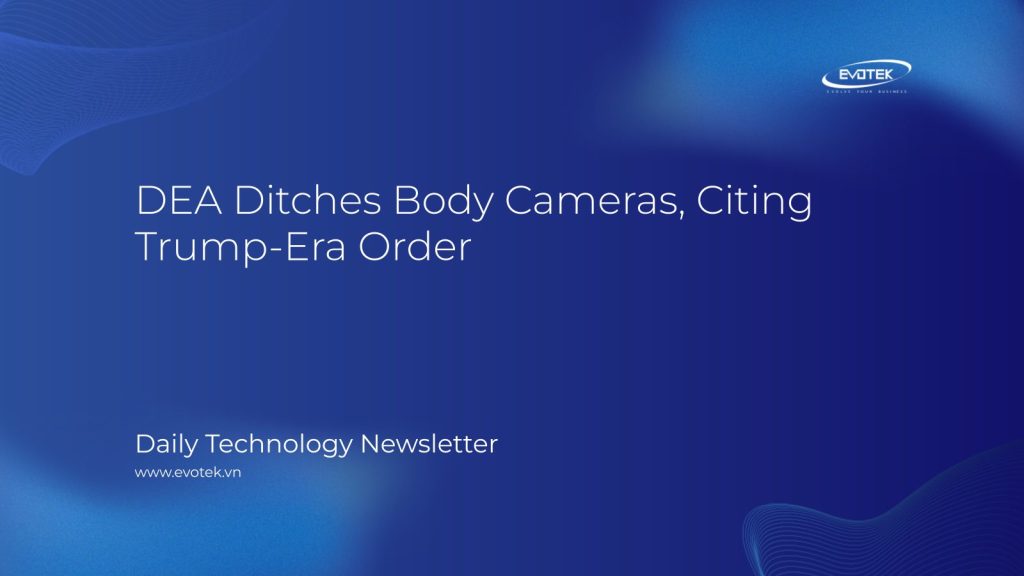The Drug Enforcement Administration (DEA) has quietly discontinued its body camera program, reversing a policy implemented just four years prior. This decision, revealed in an internal email obtained by ProPublica, aligns the agency with a Trump-era executive order that rolled back requirements for federal law enforcement to use body-worn cameras.
According to the internal email, sent to DEA employees on April 2nd, the termination of the program took effect the previous day. The DEA has not issued a public statement regarding this policy shift, and links to information about body camera policies on the DEA’s website are no longer active.
While the DEA cites consistency with the rescinded Trump executive order, other Justice Department agencies, including the U.S. Marshals Service and the Bureau of Alcohol, Tobacco, Firearms and Explosives (ATF), continue to require their agents to wear body cameras. The FBI directed inquiries about their policy to the Justice Department, which declined to comment.
The DEA has declined to comment on their reasoning, stating that they “do[es] not comment on tools and techniques.”
David DeVillers, a former U.S. attorney for the Southern District of Ohio, voiced concerns about the potential impact of this decision. “The vast majority of times I viewed body camera footage is based on allegations from a defense attorney about what a cop did,” DeVillers stated. “And I would say 95% of the time it absolves the cop of wrongdoing.”
The initial implementation of body cameras within the Justice Department followed the 2020 protests sparked by George Floyd’s death. Then-DEA Administrator Anne Milgram praised the technology in 2021, emphasizing the “enhanced transparency and assurance they provide to the public and to law enforcement officers.”
A 2022 Justice Department report highlighted body cameras as “a means of enhancing police accountability and the public’s trust in law enforcement.” Research suggests that the use of body cameras can lead to a reduction in complaints against officers.
Cameron McEllhiney, executive director of the National Association for Civilian Oversight of Law Enforcement, added that “Eliminating these videos is really taking away a tool that we’ve seen be of benefit to law enforcement practices. It’s also a great teaching tool, besides keeping community members safe from the potential misconduct that could occur.”
In August 2021, the DOJ awarded Axon, a major body camera vendor, a $30.4 million contract for cameras and related software.
The DEA’s body camera policy, last updated in December 2022, mandated camera use only during pre-planned arrests, searches, and seizures requiring a warrant, and only within the United States. The agency had requested significant funding to expand the program nationwide.
Laura Iheanachor, senior counsel at Citizens for Responsibility and Ethics in Washington (CREW), noted that the use of body cameras facilitates collaboration between state and federal law enforcement agencies.
The DEA’s abandonment of body cameras raises questions about transparency and accountability within the agency.
Keywords: DEA, body cameras, Trump executive order, law enforcement, transparency, accountability, Justice Department.

 日本語
日本語 한국어
한국어 Tiếng Việt
Tiếng Việt 简体中文
简体中文